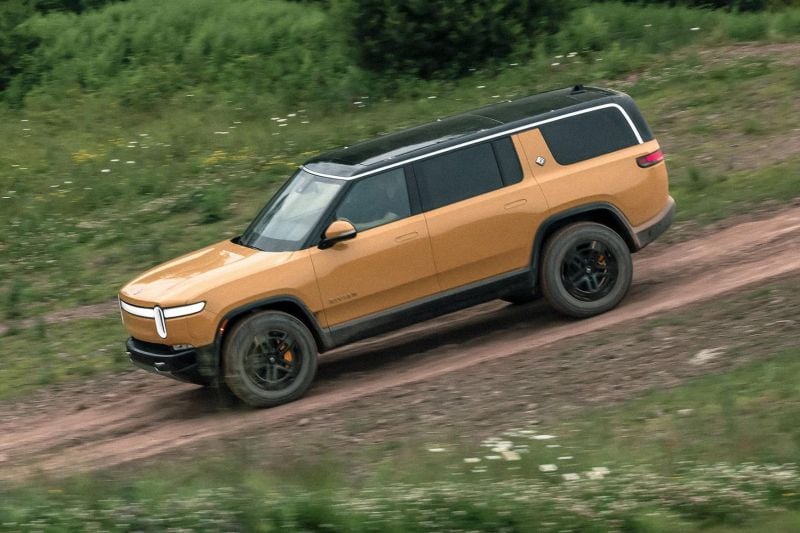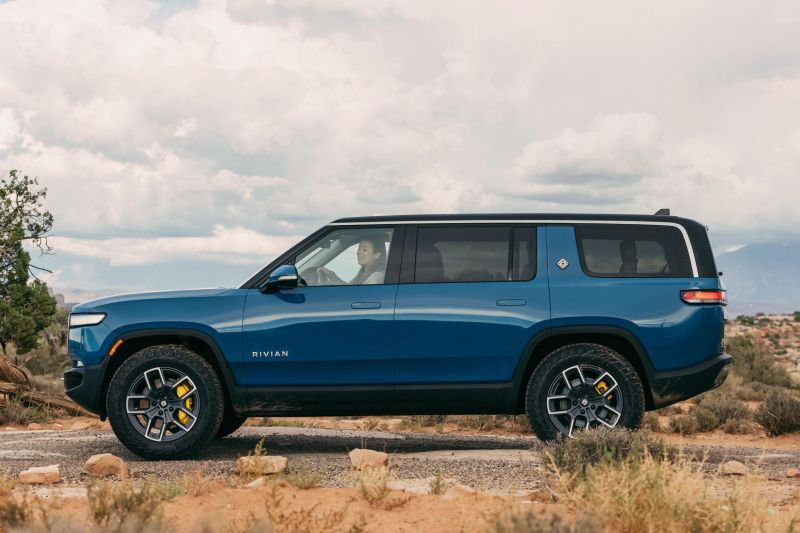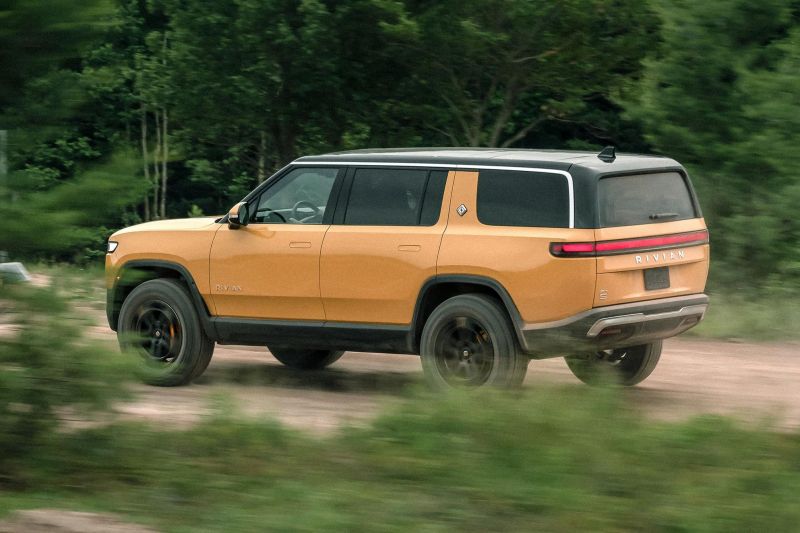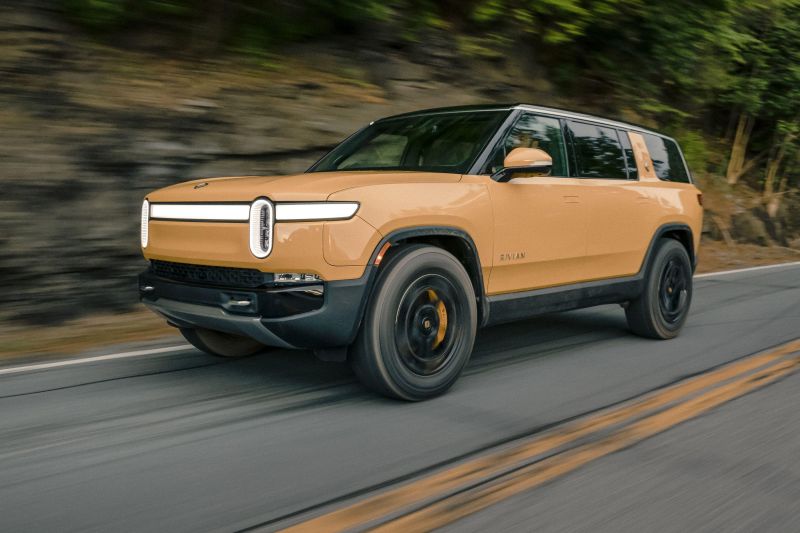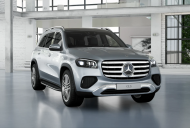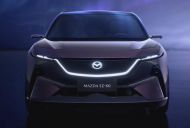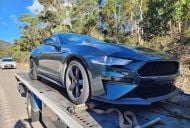US electric vehicle startup Rivian’s next vehicle could be a performance SUV with 895kW of power and 1627Nm of torque.
Motor Trend reports the rally-inspired electric SUV, which may wear the R1X nameplate, is designed to be as capable as a Jeep Wrangler or Land Rover Defender off-road and as quick as a Porsche Cayenne Turbo on it.
The R1X will reportedly feature only two rows of seating instead of the R1S’ three along with a likely sleeker silhouette.
It will also reportedly differ from the existing R1S SUV with a quad-motor all-wheel drive set-up featuring a new battery pack and more powerful motors with carbon-sleeved rotors.
The above-mentioned outputs would mean the R1X will have twice as much power and torque as the most powerful dual-motor R1S, and even put the current quad-motor R1S in the shade.
For context, the quad-motor R1S produces 623kW and 1231Nm, allowing it to do the 0-60mph (0-96km/h) dash in around three seconds.
It also offers (316 miles) of range on the stricter EPA test cycle and has a starting price of US$84,500 (A$121,286).
Motor Trend estimates pricing for the R1X could start at around US$115,000 (A$165,063), and it could go on sale in the US in the fourth quarter of 2023.
The current R1S SUV measures 5.1m long, making it roughly the same length as a BMW X7.
With a sleeker body and only two rows of seats, the R1X could be shorter – potentially with a similar length to the Porsche Cayenne, which measures between 4918mm and 4942mm long depending on the variant.
Depending on when it arrives, the R1X could find itself with no direct competition. The ranks of performance electric SUVs are growing – Porsche has two in the works, including the next Macan – but there’s not really an SUV that’s being touted as a chimera of Wrangler capability and Cayenne Turbo performance.
Rivian’s path to volume production hasn’t been entirely smooth, and late last month it confirmed a report it was laying off around six per cent of its workforce – though assembly-line workers aren’t affected.
The American startup is continuing to ramp up production of its R1T ute, which was followed by the R1S. It’s also building EDV700 electric delivery vans for Amazon.
Rivian CEO RJ Scaringe told Reuters last month the company is aiming to produce one million EVs annually by 2030 despite recent production and supply chain challenges, and is hoping to build “a lot more than that as we get out into the 2030s”.
It expects to produce 25,000 vehicles this year, its first full year of production.
For context, Tesla produced 930,422 vehicles in 2021 and CEO Elon Musk said the company could be producing 20 million vehicles annually by 2032.
In order to achieve this one million annual production goal Mr Scaringe said that it’s “going to require multiple vehicles, different platforms and sizes”.
Mr Scaringe said Rivian is planning a range of smaller commercial vehicles that could share components with the EV startup’s upcoming R2 crossover, as well as more derivatives of the large EDV700.
The smaller commercial vehicles will be built at Rivian’s second production facility in the US state of Georgia.





